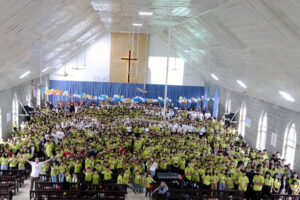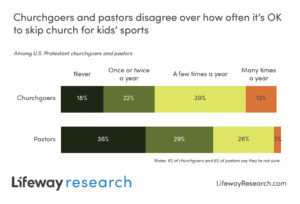
LYNCHBURG, Va. (BP)–This Christmas, I am wishing for a special gift to the students of faith in our nation’s schools. I wish them freedom.
You may think that they have the same freedom that other students enjoy, but you’d be very wrong. In fact, many Christian students across our nation have faced persecution on a variety of levels this year.
Most recently, Christian students at a Reno, Nev., high school saw their religious views officially — and unconstitutionally — censured by school officials. For several years, a Christian student club has passed out candy canes with the message “Jesus Loves You” affixed. But this year, after the principal consulted with district officials, the decision was made to deny the students permission to distribute the candy. This judgment was made because of the “specific content message” that was attached to the candy, and the potential “offense” that could be taken because of it.
This has become an almost typical reaction to the activity of Christian students in many public schools nationwide. The “you might offend somebody” excuse is becoming quite popular.
In the Reno case, Brad Dacus, president of the Citrus Heights, Calif.,-based Pacific Justice Institute, said, “We have pledged to represent these high school students and will not tolerate such blatant suppression of student religious speech.” Mr. Dacus is part of a growing group of religious freedom warriors who defends students and others against blatantly discriminatory rulings and policies.
Mr. Dacus’ group has written to the school, explaining that under the First Amendment religious speech is as protected as any other speech. (The ACLU would have you believe otherwise.) In fact, the U.S. Supreme Court has ruled that the desire to mitigate uneasiness (in this case protecting potentially offended individuals) does not constitute adequate justification for a school or district to engage in viewpoint discrimination or censorship.
Let’s hope the Reno officials quickly learn this.
There are dozens of similar cases. A few examples: Parents of slain students at Columbine High School have been prevented from mounting tiles bearing religious messages; in Albany, N.Y., students and family members have been prevented from utilizing commemorative bricks bearing religious messages; after a four-year court battle, Seattle-area Bible club students have finally won their right to meet at school just like all the other clubs; a Massachusetts student was halted in mid-report from reading a passage on the birth of Jesus simply because the book she utilized was “religious.” There are many other instances.
Earlier this year, students at Florida’s Seminole High School faced discrimination of their own. After school officials learned that a school choir was scheduled to appear at Sept. 11 memorial event, they were denied permission to sing.
The sole reason? The event was to be held at a local church. In fact, school officials announced that they were permanently banning the choir from singing at any event conducted at a church.
Thankfully, there is a happy conclusion to this story. After Mathew Staver of the Orlando-based Liberty Counsel interceded for the choir, the principal announced that the school board has had a change of mind. He issued new guidelines that will allow the award-winning Seminole High School Gospel Choir to sing at religious events. Upon hearing the news, members of the predominately black choir erupted in cheers.
–30–
Falwell is pastor of Thomas Road Baptist Church, Lynchburg, Va., and chancellor of Liberty University.














